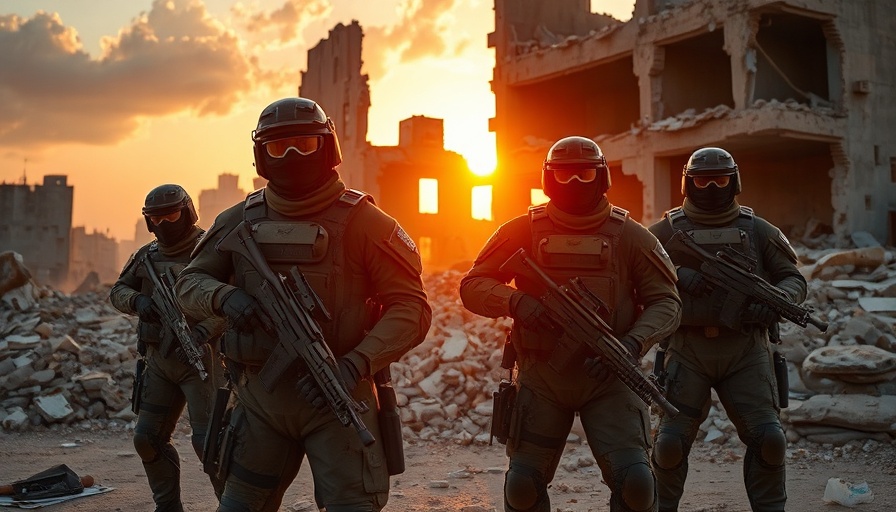
Hamas's Firm Stance Signals Ongoing Conflict Amid Uncertainties
As negotiations falter, Hamas has officially rejected a proposal from U.S. special envoy Steve Witkoff, setting a troubling stage for renewed conflict in Gaza. This rejection brings renewed fears of escalating violence, as assessments indicate that Hamas’s determination may only harden in the face of diplomatic attempts to secure a ceasefire.
The Witkoff Plan Explained
The Witkoff plan, aimed at achieving an extended ceasefire and the release of hostages, proposed a temporary truce in exchange for humanitarian aid. It intended to cover significant religious periods, namely Ramadan and Passover. However, Hamas vehemently dismissed the plan, alleging that it undermines agreed-upon ceasefire conditions.
Consequences of the Ongoing Standoff
The implications of Hamas's steadfast stance are multifaceted. First, it potentially jeopardizes humanitarian efforts in the Gaza Strip, where conditions are already dire due to ongoing blockades and conflict. The rejection of the Witkoff plan by Hamas also means the resumption of hostilities could emerge as a likely scenario, exacerbating the suffering of civilians caught in the middle.
Hostages and Humanitarian Aid: A Complex Bargain
Central to this negotiation deadlock is the sensitive issue of hostages. While Hamas has hinted at releasing select captives, the broader demand from Israel remains unmet: a more structured agreement that includes more hostages as well as the resumption of crucial aid. With approximately 59 captives still believed to be held, including those with dual nationality, the stakes remain incredibly high.
Global Reactions and Prospects for Peace
The international community continues to watch closely, especially given the historically complex context of U.S.-Middle East relations. Analysts highlight that insistence on Hamas's compliance may prove counterproductive without addressing the underlying humanitarian crises. Negotiations with Hamas through mediators have not ceased, ensuring that dialogues continue despite the hostility.
Future Predictive Insights: What Lies Ahead?
Looking ahead, experts suggest that unless both sides can bridge their differences significantly, a renewed conflict could erupt. The situation poses risks not only for those directly involved but also for regional stability. Many fear that political miscalculations could lead to loss of life, further entrenching the cycle of violence in a volatile region.
Understanding Perspectives in a Divided Context
For peace advocates and humanitarian-focused individuals, understanding both sides’ perspectives is crucial. Culturally engaged Christians and social justice advocates must recognize the complexities and human cost behind these negotiations while also addressing the broader implications these conflicts have for global peace initiatives.
Ultimately, it is critical to remain informed about these dynamics. For those concerned about the crises unfolding in the Middle East, engaging with the narratives of those affected—be they hostages, civilians, or combatants—can help cultivate a more profound empathy and drive for action. Continued advocacy for peaceful resolutions that acknowledge human dignity and rights must be at the forefront.
As developments unfold, it's essential to stay connected and educate ourselves about the humanitarian situation in Gaza and advocate for supportive policies that promote understanding and peace.
 Add Row
Add Row  Add
Add 








Write A Comment